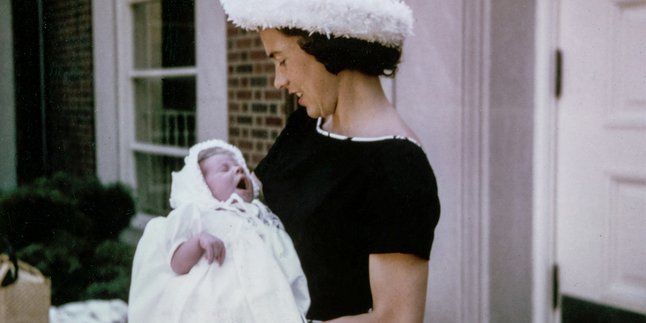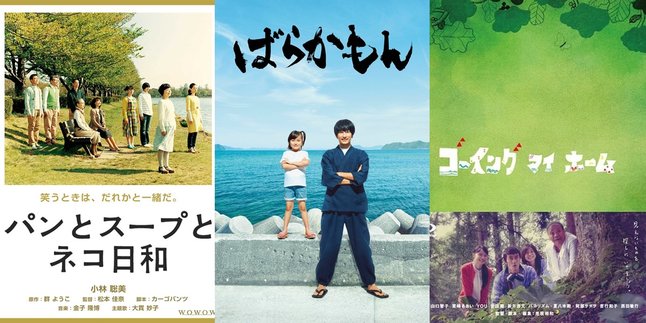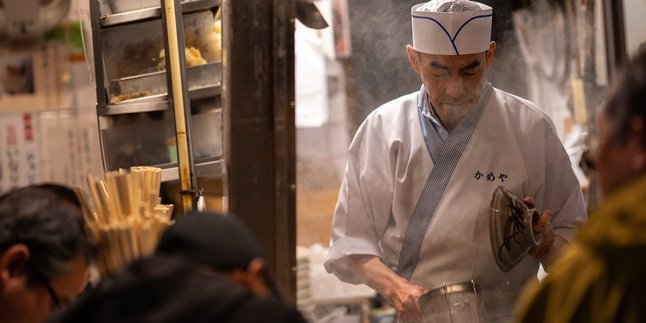Kapanlagi.com - The Japanese language, with its uniqueness and complexity, holds various interesting ways to express humor and jokes. From clever wordplay to traditional comedy performances, Japanese joking in Japanese culture has developed a variety of humorous expressions that reflect social values and aesthetics.
In this article, Kapanlagi will explore the world of Japanese humor, starting from everyday Japanese joking expressions to show the intent to joke, to various types of popular Japanese jokes in the Land of Sakura. This material is suitable for anyone interested in the unique ways humans express humor.
For those of you who are curious, let's take a look at interesting Japanese joking expressions that highlight the light and entertaining side of communication in Japanese. Check it out, KLovers!
1. Japanese Expressions for Joking
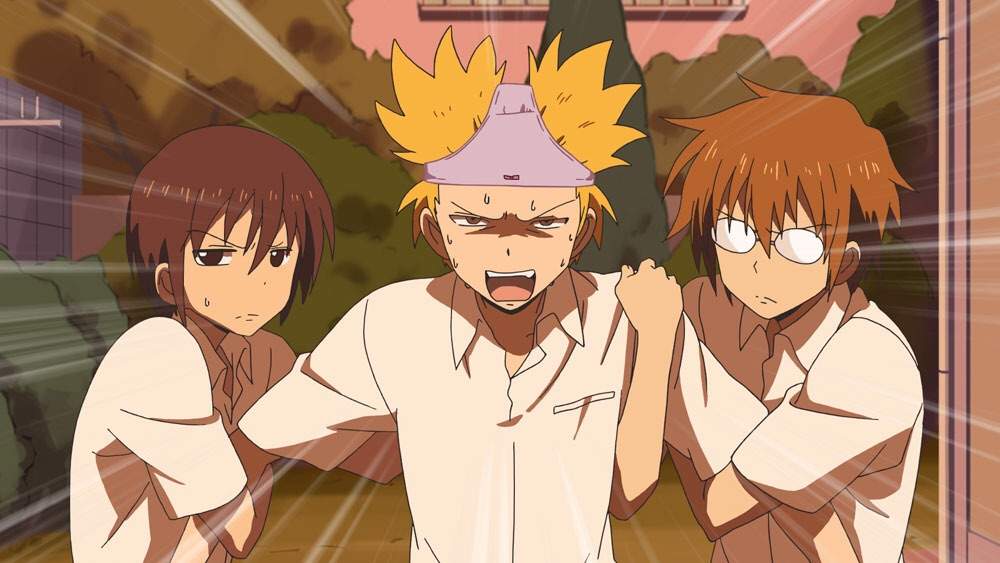
Anime Daily Lives of High School Boys (credit: imdb.com)
In Japanese, a common expression to indicate that someone is joking is "joudan desu", which literally means "this is a joke" or "I am joking". This Japanese joking expression consists of the word "joudan" which means a joke or jest, and "desu", which is a particle that indicates politeness.
Typically, Japanese jokes are spoken with a light tone and a smile. Joudan desu is used after someone says something serious to clarify that the previous statement was just a jest. An informal variation of this expression is "joudan da yo", while "joudan desu yo" is used for emphasis.
In its usage, it is important to understand the context and relationship with the conversation partner, as some jokes may not be appropriate in formal situations or with newly acquainted people. This expression is very useful to avoid misunderstandings in communication, especially when something sounds serious but is intended as a joke.
2. Types of Jokes in Japanese Language
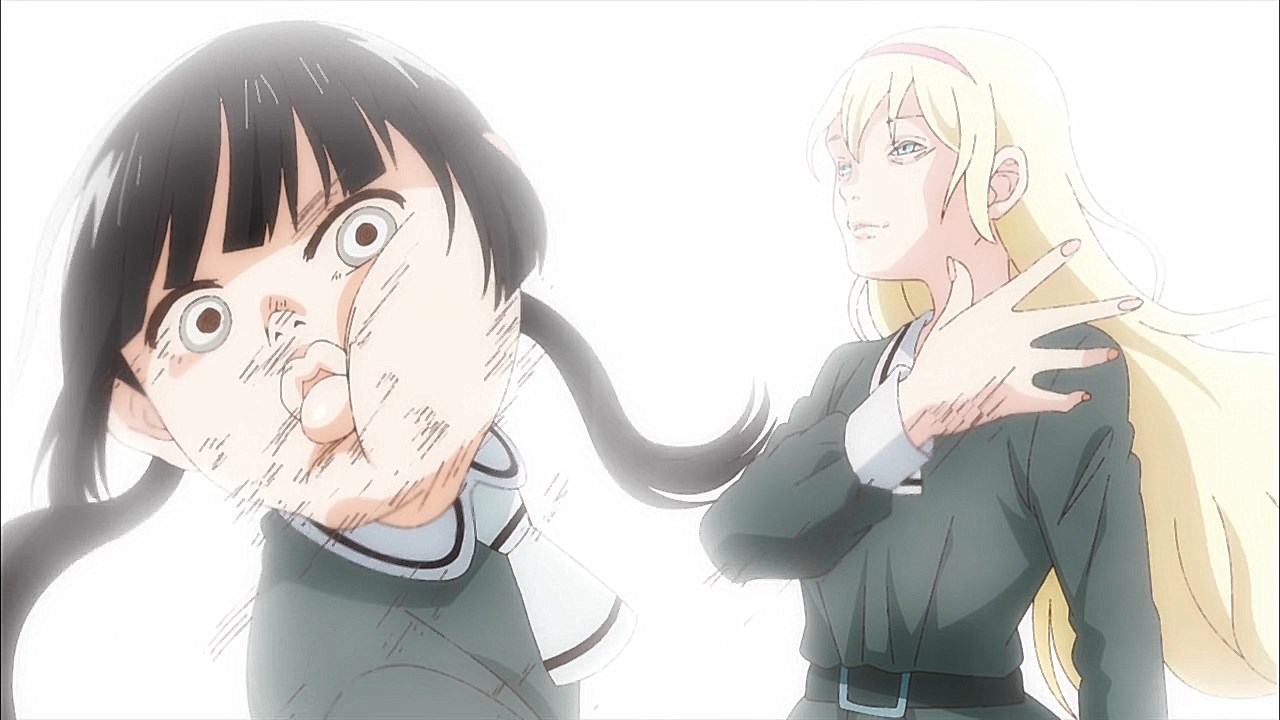
Anime Asobi Asobase (credit: imdb.com)
After understanding the meaning of jokes in the Japanese language, KLovers can also learn about the types of Japanese jokes that are important to know. In Japanese culture, there are several types of jokes or humor that have their own characteristics.
Understanding and appreciation of these types of humor can vary depending on context, age, and cultural background. Some types of humor may be easier for Japanese people to understand, especially those involving wordplay or specific cultural references.
Here are some popular types of jokes or expressions in the Japanese language, complete with examples:
1. Dajare
Wordplay or puns that are often considered cheap jokes. Dajare usually uses words that sound similar but have different meanings.
Example: "Futon ga buttonda" (The mattress is blown away)
Wordplay: "Futon" (mattress) and "buttonda" (blown away) which sound similar.
2. Oogiri
A form of improvisational comedy where participants must provide funny answers to given questions or situations. This type of joke is often seen in variety shows.
Example: "What would a ninja say upon retirement?"
Funny answer: "Mou kakuremasen" (I won't hide anymore.)
3. Manzai
A comedy performance that involves two people, usually consisting of a "tsukkomi" (the sane person) and a "boke" (the silly person). The tsukkomi usually criticizes or corrects the boke's mistakes.
For example:
Boke: "I just bought a dog that can talk!"
Tsukkomi: "There's no such thing as a talking dog, you fool!"
Boke: "Really! He says 'wan wan'!"
Tsukkomi: "That's just normal barking, not talking!"
4. Rakugo
Rakugo is a traditional Japanese comedic storytelling art performed by a single storyteller. The storyteller sits on stage and narrates a funny story, often with dialogue between several different characters.
For example:
The famous story "Jugemu", where a child is given an extremely long and silly name, leading to various funny situations.
5. Gyagu
This type of joke is a short gag or joke often used in anime, manga, or variety shows. It usually consists of a brief and surprising visual or verbal joke.
For example:
An anime character suddenly turning into chibi (a smaller and cuter cartoon version) when surprised or angry.
6. Kurai joudan
This is dark humor or sarcasm, although this type of humor is not very common in Japanese culture. Despite not being very common in Japanese culture, this type of humor still exists.
For example:
"Kono yo no naka de ichiban kakujitsu na no wa, zeikin to shi dake da" (The only certain things in this world are taxes and death.)
7.Shakai
This type of joke is satire or humor that critiques social and political issues. This kind of humor is often found in manga or anime that discuss social themes.
For example:
The manga "Oishinbo" often critiques social and political issues in Japan through stories about food.
8.Keigo joudan
A joke that uses formal language (keigo) excessively for comedic effect. This kind of joke is usually used to create absurd situations.
For example:
Using very formal language when talking to pets, such as "Ote wo douzo onegai moushiagemasu" (I humbly request you to give me your hand.)
9.Shiritori joudan
A joke that uses the Shiritori word game, where the next word must start with the last syllable of the previous word. Jokes can be made by creating a series of nonsensical or funny words.
A: Sakura - cherry blossom
B: Rappa - trumpet
A: Panda
B: Daikon - Japanese radish
Those are some explanations of Japanese expressions for joking and their types. Understanding Japanese humor opens a new door to cultural appreciation. Happy exploring and enjoying the richness of jokes in the Japanese language!
(kpl/dhm)
Disclaimer: This translation from Bahasa Indonesia to English has been generated by Artificial Intelligence.



